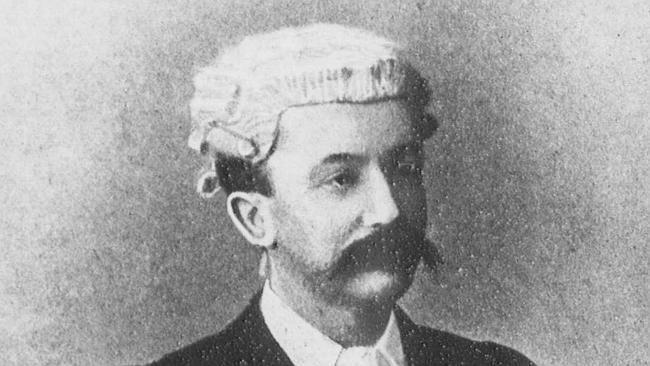Danny Boy: mystery remains over a haunting tune
Its melody and sorrowful words will keep Danny Boy alive as long as people have ears. So will the debate over its lyrics.

(Written by Frederic Edward Weatherly — reached No. 17 on the charts in 1940, charted multiple times since)
Its eternal melody and the sorrowful words written to fit it — they weren’t the first — by a London lawyer will keep Danny Boy alive for as long as people have ears. And its apparently contradictory lyrics, along with the enduring mystery of its melody’s authorship, will maintain debate about it just as long.
For the Irish diaspora, it has long been the unofficial national anthem. Its melancholy sentiment has made it a popular choice to be played at funerals, and not just for the sons and daughters of Erin.
In recent years senior church figures have sought to ban Danny Boy as part of funeral masses. A little late, perhaps: the music (if not always the words) has been performed at the funerals of US president John F. Kennedy, Princess Diana and Elvis Presley.
But who is Danny? More important, who is singing this song to him? The pipes, we know, are calling. No one doubts that means pipers have marched through Danny’s valley summoning young men to go to war; nonetheless, it is not Danny’s death the singer fears but their own.
But when ye come, and all the flowers are dying,
If I am dead, as dead I well may be,
Ye’ll come and find the place where I am lying,
And kneel and say an Ave there for me
For 103 years since those words were written by Frederic Weatherly, who knew nothing of Ireland, had never been there and had no knowledge of its folk music, people have debated whether Danny Boy is the song of a lover to a partner or a parent to a son.
Weatherly never said, and with good reason. In those days composers made most money selling sheet music to others who wished to sing their songs. The more people who would sing your song — and needed the charts to do so — the more money you made.
So Weatherly, and others in that era, would write songs that could be sung by men and women. Either could sing Danny Boy with equal conviction. Weatherly purposefully kept the singer’s sex vague. Years later, Anthony Mann wrote a book about his great-grandfather’s famous song and insisted it was written to be sung by a woman ruing her man’s departure.
Weatherly never gave the game away. But in his lifetime, sheet music was published with an italicised footnote that stated that when the song was performed by a man its lyrics might read “Eily Dear”. And other lyrics were changed. Instead of:
It’s you, it’s you must go and I must bide.
This version stated:
It’s I, it’s I must go. And you must bide.
But Weatherly, if he approved this at all, did so five years later.
Those who debate the words — entire websites are devoted to it — and believe it to be a lover’s lament rely on the final stanza to prosecute their case:
For you will bend and tell me that you love me,
And I shall sleep in peace until you come to me!
Would a parent be so possessive? Or are those words that may be uttered only by a wife? If it is a wife, why does she fear her death may be imminent?
The music that became known as Londonderry Air was regularly played by a blind fiddler called Jimmy McCurry and was heard by Jane Ross on the streets of Limavady, not far east of Derry. Enchanted by its haunting shifts, and with McCurry helping out, she wrote out the notation and sent it to a collector of airs who then published it in a folio of similar songs.
Ross gave McCurry a coin for his efforts. He is said to have rubbed it on his lips and, identifying it as a florin rather than a mere penny, tried to hand it back, but Ross was insistent that he keep it in exchange for his beautiful tune.
That was 1851, when McCurry was perhaps 21. Did the blind fiddler compose it? Musicologists believe its use of sharps where traditionally there would have been a flat suggest the air is not ancient. It was given the name Londonderry Air in deference to Ross’s Northern Ireland county.
The tune went wherever the Irish went and was soon on the goldfields of California.
Weatherly’s sister-in-law heard it in America in 1912 and posted the music back to England. By then the song had a life of its own and had been arranged by notable musicians, including Australia’s Percy Grainger.
Weatherly practised law, was a King’s Counsel, sometimes working with Charles Dickens’s son Henry, and counted four-time British PM William Gladstone as a friend. But he loved writing songs and composed perhaps 3000, including Roses of Picardy. He liked the music sent to him from America and — unaware others had composed lyrics for it — exhumed from his bureau drawer words he had written two years earlier. With only the slightest editing they fitted, and Danny Boy was born.




To join the conversation, please log in. Don't have an account? Register
Join the conversation, you are commenting as Logout